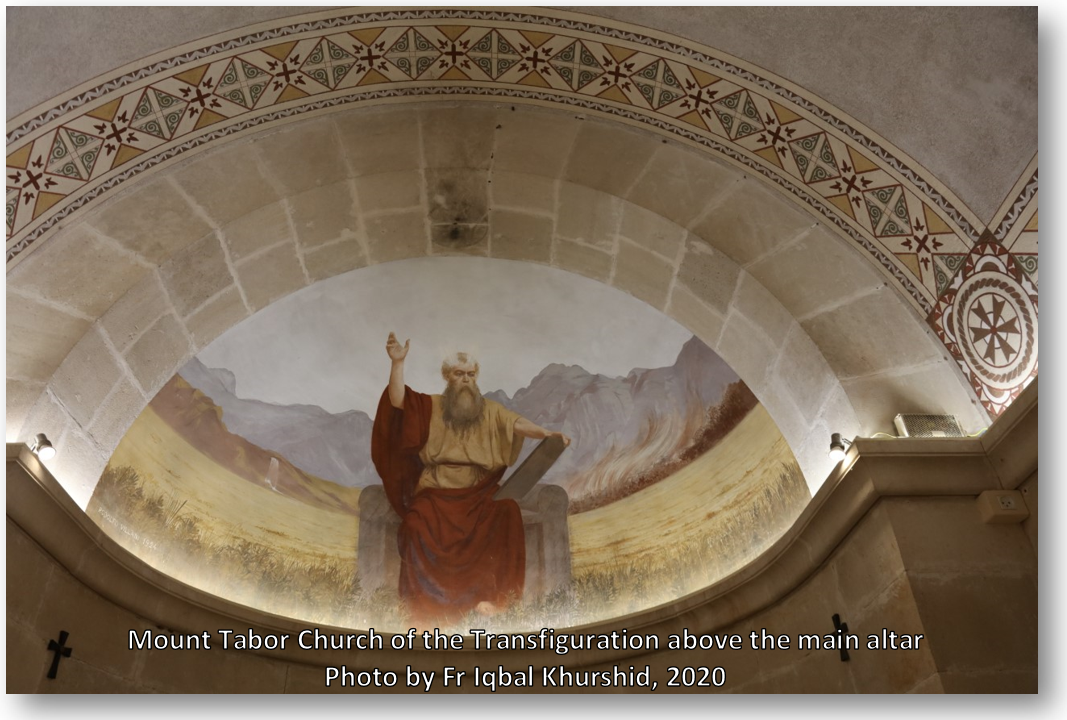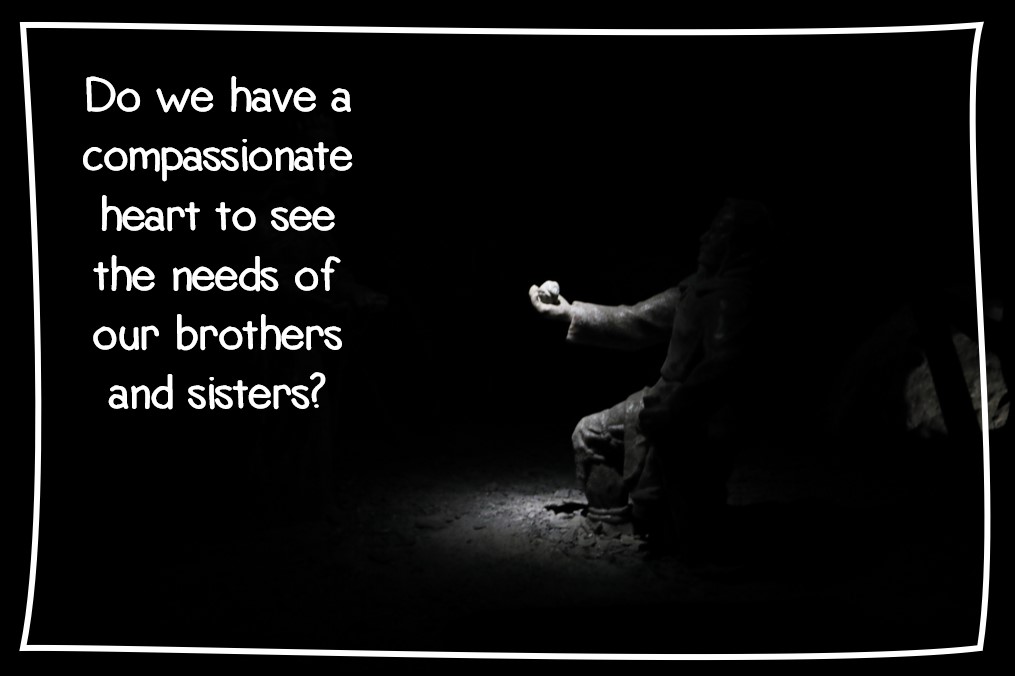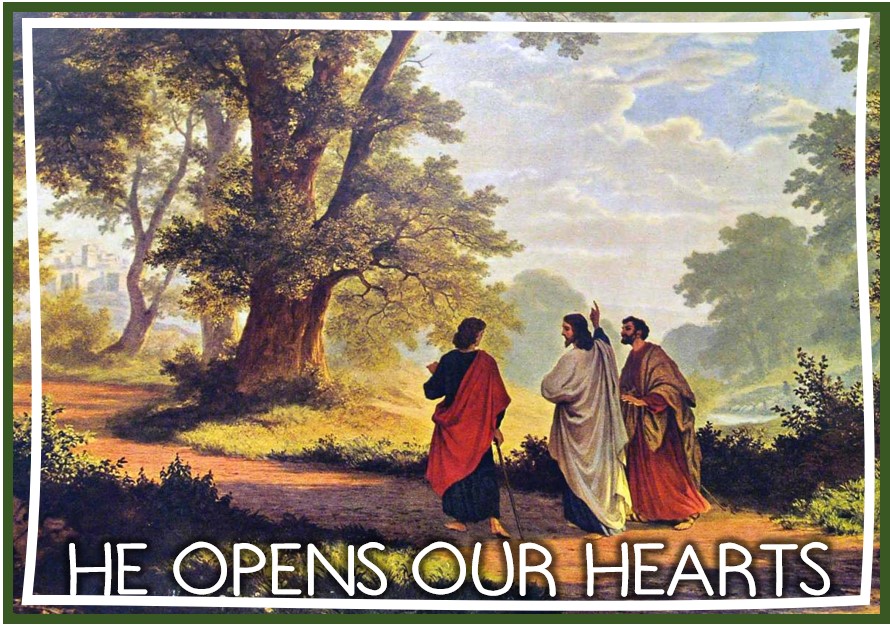
6th Sunday of Easter Year C ~ May 22, 2022
KEEPING HIS COMMANDMENTS
There was once a man who had four young sons. Wanting to teach them about the dangers of judging things too rapidly, he decided to send each of them on a journey, one after the other, to a distant pear tree. Each son when in a different season, the first in winter, the second in spring, and so on. At the end of the year, he brought his children together and asked them what they’d seen.
The son who’d travelled in winter described a gnarled, twisted, and barren tree that stood stark and ugly against the land. The son who went in spring disagreed. No, he said, the tree seemed full of hope and promise, with green buds along its branches. The third son, who’d travelled in summer, disagreed once more. The pear tree he had seen was covered in beautiful blossom that looked and smelled divine. Finally, the last son, who’d made the journey in fall, disagreed again, describing a tree laden with sweet and delicious pears that tasted better than any he’d eaten before.
When each son had spoken, the father said they were all correct, because they’d only seen but one season of the pear tree’s life. He explained to his sons that it’s foolish and impossible to judge something in this manner. The essence of something, whether it’s a tree or their fellow man, can only be measured as a whole, at the end of the year, having seen it in its fullness. To make your judgment in winter is to miss the promise of spring, the beauty of summer, and the fruit in fall.
How true it is to see the lesson from the Readings today? By keeping the commandments of the Lord, we can change our lives and can become followers of Jesus. Last Sunday we reflected on our Christian identity when Jesus said, “By this people will know that you are my disciples”. Our identity lies within the commandment of loving one another. There is a beautiful reflection from a letter to Diognetus:
“Christians are indistinguishable from other men either by nationality, language or customs. They do not inhabit separate cities of their own, or speak a strange dialect, or follow some outlandish way of life. Their teaching is not based upon reveries inspired by the curiosity of men. Unlike some other people, they champion no purely human doctrine. With regard to dress, food and manner of life in general, they follow the customs of whatever city they happen to be living in, whether it is Greek or foreign. And yet there is something extraordinary about their lives. They live in their own countries as though they were only passing through. They play their full role as citizens, but labor under all the disabilities of aliens. Any country can be their homeland, but for them their homeland, wherever it may be, is a foreign country. Like others, they marry and have children, but they do not expose them. They share their meals, but not their wives. They live in the flesh, but they are not governed by the desires of the flesh. They pass their days upon earth, but they are citizens of heaven. Obedient to the laws, they yet live on a level that transcends the law.
Christians love all men, but all men persecute them. Condemned because they are not understood, they are put to death, but raised to life again. They live in poverty, but enrich many; they are totally destitute, but possess an abundance of everything. They suffer dishonor, but that is their glory. They are defamed, but vindicated. A blessing is their answer to abuse, deference their response to insult. For the good they do they receive the punishment of malefactors, but even then, they rejoice, as though receiving the gift of life. They are attacked by the Jews as aliens, they are persecuted by the Greeks, yet no one can explain the reason for this hatred.
To speak in general terms, we may say that the Christian is to the world what the soul is to the body. As the soul is present in every part of the body, while remaining distinct from it, so Christians are found in all the cities of the world but cannot be identified with the world. As the visible body contains the invisible soul, so Christians are seen living in the world, but their religious life remains unseen. The body hates the soul and wars against it, not because of any injury the soul has done it, but because of the restriction the soul places on its pleasures. Similarly, the world hates the Christians, not because they have done it any wrong, but because they are opposed to its enjoyments.
Christians love those who hate them just as the soul loves the body and all its members despite the body’s hatred. It is by the soul, enclosed within the body, that the body is held together, and similarly, it is by the Christians, detained in the world as in a prison, that the world is held together. The soul, though immortal, has a mortal dwelling place; and Christians also live for a time amidst perishable things, while awaiting the freedom from change and decay that will be theirs in heaven. As the soul benefits from the deprivation of food and drink, so Christian’s flourish under persecution. Such is the Christian’s lofty and divinely appointed function; from which he is not permitted to excuse himself”.
The passage taken from the Acts of the Apostles speaks to us about what is essential. In the early Church there was immediately a need to discern what was essential about being a Christian, about following Christ, and what was not. The apostles and the other elders held an important meeting in Jerusalem, a first “council” (which took place in 50AD known as Council of Jerusalem), on this theme, to discuss the problems which arose after the Gospel had been preached to the pagans, to non-Jews. It was a providential opportunity for better understanding what is essential, namely, belief in Jesus Christ who died and rose for our sins and loving him as he loved us. There is a beautiful lesson hidden for us to know that by coming together and speaking out, we can solve the problems but unfortunately guns and wars have become the means to solve the issues which lead us towards hatred, division, disunity, and discrimination. But note how the difficulties and misunderstandings were overcome: not from without, but from within the Church. Once we know what is essential then we can keep the command of the Lord within our hearts (please read Psalm 119). Holy Father Pope Francis says “In your parishes, in your dioceses, be a true “lung” of faith and Christian life, a breath of fresh air! In this Square I see a great variety: earlier on it was a variety of umbrellas, and now of colours and signs. This is also the case with the Church: a great wealth and variety of expressions in which everything leads back to unity; the variety leads back to unity, and unity is the encounter with Christ”.
To keep the commandment of the Lord means we look at his Holy Cross everyday because whenever we carry the crucifix in procession with such great veneration and love for the Lord, we are not performing a simple outward act; we are pointing to the centrality of the Lord’s paschal mystery, his passion, death and resurrection which have redeemed us, and you are reminding yourselves first, as well as the community, that we have to follow Christ along the concrete path of our daily lives so that he can transform us. I remember during the Confirmation Mass, when Bishop asked the candidate the question about the Easter Symbol, many of them responded about the Paschal Candle and how the flame reminds us that we are called to be the light and without keeping his commandments we can’t follow his paths. The Blessed Virgin Mary teaches us how to keep his commandments and meditate on them day and night.
Jesus through the Gospel of John continue his farewell discourse as he is sitting at the dinner table. Jesus entrusts his last thoughts, as a spiritual testament, to the apostles before he leaves them. Last Sunday Jesus said in the same chapter “today I give you a new commandment… love one another” which was followed by him washing the feet of his disciples. Today’s text makes it clear that Christian faith is completely centred on the relationship between the Father, the Son and the Holy Spirit. Whoever loves the Lord Jesus welcomes him and his Father interiorly, and thanks to the Holy Spirit receives the Gospel in his or her heart and life. Here we are shown the centre from which everything must go forth and to which everything must lead loving God and being Christ’s disciples by living the Gospel. Pope Benedict XVI used this expression: evangelical spirit.
Pope Francis says “Draw always from Christ, the inexhaustible wellspring; strengthen your faith by attending to your spiritual formation, to personal and communitarian prayer, and to the liturgy. Advance with determination along the path of holiness; do not rest content with a mediocre Christian life, but let your affiliation serve as a stimulus, above all for you yourselves, to an ever greater love of Jesus Christ”.
Saint Gaudentius of Brescia, bishop reflecting on the true image of Christians who keep the commandment of the Lord said “One man has died for all, and now in every church in the mystery of bread and wine he heals those for whom he is offered in sacrifice, giving life to those who believe and holiness to those who consecrate the offering. This is the flesh of the Lamb; this is his blood. The bread that came down from heaven declared: The bread that I will give is my flesh for the life of the world. It is significant, too, that his blood should be given to us in the form of wine, for his own words in the gospel, I am the true vine, imply clearly enough that whenever wine is offered as a representation of Christ’s passion, it is offered as his blood. This means that it was of Christ that the blessed patriarch Jacob prophesied when he said: He will wash his tunic in wine and his cloak in the blood of the grape. The tunic was our flesh, which Christ was to put on like a garment and which he was to wash in his own blood”.
Even if we fail to keep his commandments, Holy Spirit does help us to understand his message because Holy Spirit is our Advocate and Help who prays for us as St. Paul writes to the Romans “Brothers and Sisters: For all who are led by the Spirit of God are children of God. For you did not receive a spirit of slavery to fall back into fear, but you have received a spirit of adoption. When we cry, “Abba! Father!” it is that very Spirit bearing witness with our spirit that we are children of God, and if children, then heirs, heirs of God and joint heirs with Christ—if, in fact, we suffer with him so that we may also be glorified with him” (8:14-17).
There was once a group of 100 people attending a seminar on personal development.
In the middle of their talk, the speaker stops and decides to run an impromptu group activity. He hands out a balloon to each attendee and tells them to write their name on it. The balloons are then collected and placed in an adjacent room. The speaker then instructs the 100 attendees to enter that room and, within 5 short minutes, find the balloon with their name on it. Pandemonium breaks loose as they charge in, pushing and colliding with each other as they desperately search for their name. The 5 minutes pass and nobody succeeds. The speaker then tells each person to pick up any random balloon and give it the person whose name is written on it. Within a few minutes everyone has their balloon back. He then said, “What just happened with those balloons is exactly what happens in our search for happiness. We frantically look for it all around us, not knowing where it is.” Our happiness and strength is found in the commandment of the Lord and Holy Spirit is there to follow them.
Do we keep his Commandments?
Other Sermons In This Series
4th SUNDAY OF LENT – YEAR C ~ MARCH 30, 2025
March 27, 2025

26th Sunday in Ordinary Time Year C ~ September 25, 2022
September 23, 2022

3nd Sunday of Easter Year A ~ April 23, 2023
April 21, 2023

